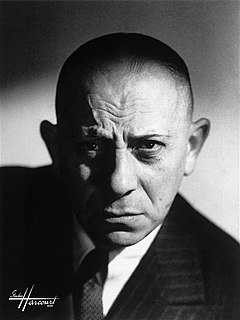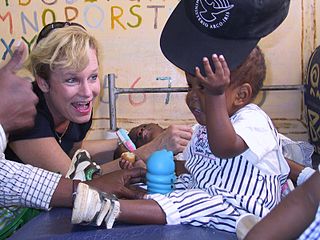A Quote by Friedrich Nietzsche
Marriages that made out of love (so-called "love-matches") have error as their father and misery (necessity) as their mother.
Related Quotes
We get caught. How? Not by what we give but by what we expect. We get misery in return for our love: not from the fact that we love but from the fact that we want love in return. There is no misery where there is no want. Desire, want, is the father of all misery. Desires are bound by the laws of success and failure. Desires must bring misery.
The only perfect love to be found on earth is not sexual love, which is riddled with hostility and insecurity, but the wordless commitment of families, which takes as its model mother-love. This is not to say that fathers have no place, for father-love, with its driving for self-improvement and discipline, is also essential to survival, but that uncorrected father-love, father-love as it were practiced by both parents, is a way to annihilation.
Her [Eleanor Roosevelt] father was the love of her life. Her father always made her feel wanted, made her feel loved, where her mother made her feel, you know, unloved, judged harshly, never up to par. And she was her father's favorite, and her mother's unfavorite. So her father was the man that she went to for comfort in her imaginings.
Disease is the misery of our belief, happiness is the health of our wisdom, so that man's happiness or misery depends on himself. Now, as our misery comes from our belief, and not from the thing believed, it is necessary to be on the watch, so as not to be deceived by false guides. Sensation contains no intelligence or belief, but is a mere disturbance of the matter, called agitation, which produces mind, and is ready to receive the seed of error. Ever since man was created, there has been an element called error which has been busy inventing answers for every sensation.
Mother love has been much maligned. An over mothered boy may go through life expecting each new woman to love him the way his mother did. Her love may make any other love seem inadequate. But an unloved boy would be even more likely to idealize love. I don't think it's possible for a mother or father to love a child too much.
There is a lot of difference between tempting and leading into error. God tempts but does not lead into error. To tempt is to provide opportunities for us to do certain things if we do not love God, but putting us under no necessity to do so. To lead into error is to compel a man necessarily to conclude and follow a falsehood.
When I talk about unrequited love, most of you probably think about romantic love, but there are many other kinds of love that are not adequately returned, if they are returned at all. An angry adolescent may not love her mother back as her mother loves her; an abusive father doesn't return the innocent open love of his young child. But grief is the ultimate unrequieted love. However hard and however long we love someone who has died, they can never love us back. At least that is how it feels.







































